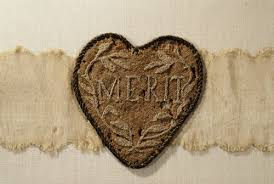On this date...
- katellashisadventure
- Jul 22
- 3 min read

In 1796, a party of surveyors commissioned by General Moses Cleaveland arrived at the mouth of the Cuyahoga River, believing it to be an ideal location for a new town—Cleaveland, Ohio. The Connecticut Land Company had sent General Cleaveland to the Western Reserve—the northeastern region of Ohio—to speed the sale of the 3.5 million acres that the land company had reserved when Ohio was opened for settlement ten years earlier. In 1831, the Cleveland Advertiser dropped the first “a” in the city’s name to reduce the length of the newspaper’s masthead. From then on, the community was known as Cleveland.
In 1587, An English colony, fated to vanish under mysterious circumstances, was established on Roanoke Island off North Carolina.
In 1862, On July 22, 1862, President Abraham Lincoln informs his chief advisors and cabinet that he will issue a proclamation to free enslaved people, but adds that he will wait until the Union Army has achieved a substantial military victory to make the announcement.
In 1864, In the one-day Battle of Atlanta, the largest battle of the Atlanta Campaign, Confederate General John Bell Hood continues to try to drive General William T. Sherman from the outskirts of the city when he attacks the Yankees on Bald Hill. The attack failed, and Sherman tightened his hold on Atlanta.
In 1916, On July 22, 1916, a massive parade held in San Francisco, California, to celebrate Preparedness Day, in anticipation of the United States entrance into World War I, is disrupted by the explosion of a suitcase bomb, which kills 10 bystanders and wounds 40 more. It would be considered the worst terrorist act in the city's history.
In 1923, American baseball player Walter Johnson became the first pitcher in the MLB to strike out 3,000 batters; his career record of 3,508 strikeouts stood until 1983.
In 1933, American aviator Wiley Post completed the first solo flight around the world; he covered 15,596 miles (25,099 km) in 7 days, 18 hours, 49 minutes.
In 1934, Outside Chicago’s Biograph Theatre, notorious criminal John Dillinger—America’s “Public Enemy No. 1″—is killed in a hail of bullets fired by federal agents.
In 1937, the U.S. Senate rejected President Franklin D. Roosevelt’s proposal to add more justices to the Supreme Court.
In 1943, Led by U.S. General George S. Patton, Allied forces took Palermo, on the northwest corner of Sicily, giving them a strategic foothold from which to invade mainland Italy during World War II.
In 1991, Cannibal and serial killer Jeffrey Dahmer is caught.
In 1994, O.J. Simpson pleaded innocent to the slaying of his ex-wife, Nicole, and her friend, Ronald Goldman.
In 1995, Susan Smith was convicted by a jury in Union, S.C., of first-degree murder for drowning her two sons. (She is serving life in prison.)
In 1999, the Woodstock ’99 music festival began; the event would ultimately be marred by destruction and violence by concertgoers amid lax security and stifling heat.
In 2003, Former Iraqi dictator Saddam Hussein’s sons, Qusay and Uday Hussein, are killed after a three-hour firefight with U.S. forces in the northern Iraqi city of Mosul.
In 2004, The Sept. 11 commission issued a report saying America's leaders failed to grasp the gravity of terrorist threats before the 9/11 attacks.
In 2015, a federal grand jury indictment charged Dylann Roof, the man accused of killing nine Black church members in Charleston, South Carolina, with 33 counts including hate crimes that made him eligible for the death penalty.
In 2022, Steve Bannon, a longtime ally of former President Donald Trump, was convicted of contempt charges for defying a congressional subpoena from the House committee investigating the Jan. 6 insurrection at the U.S. Capitol.









Comentários